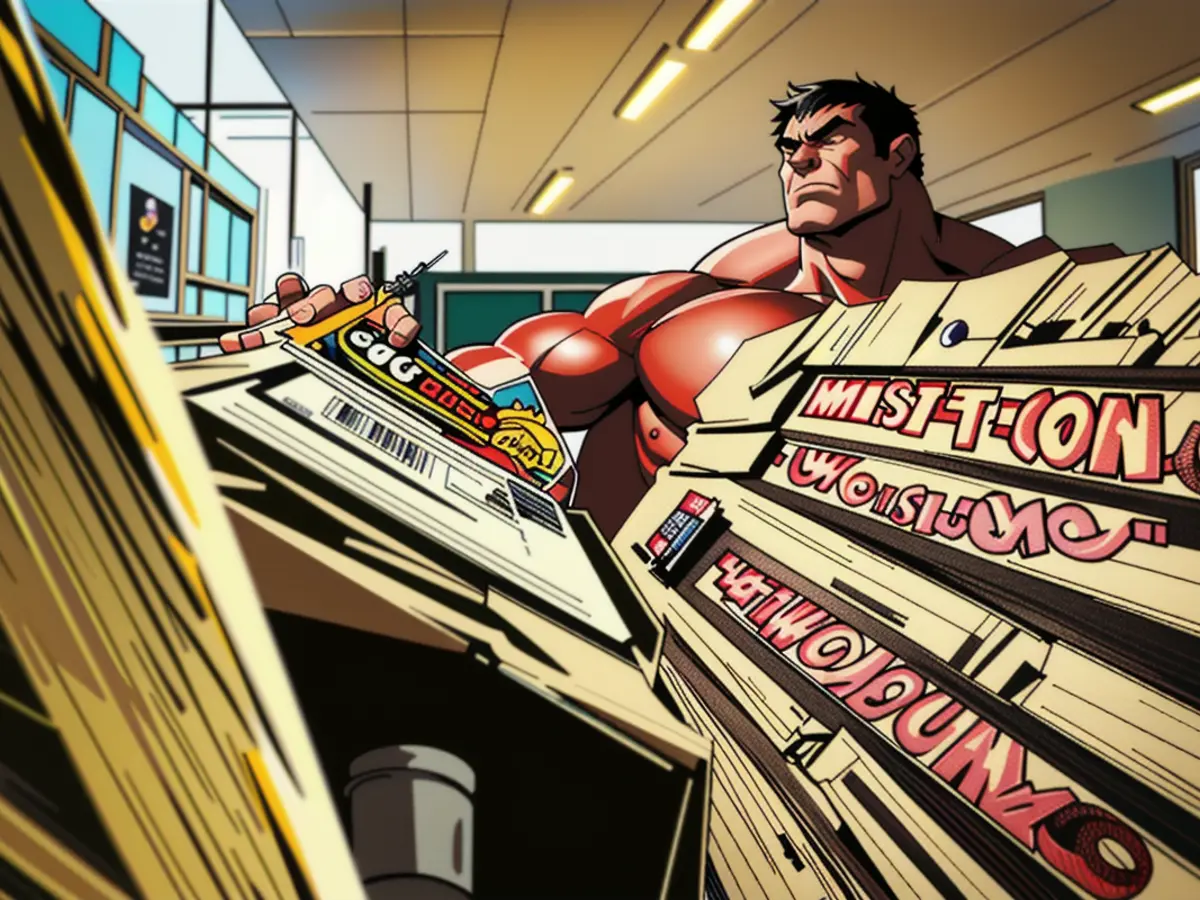The professional organization remains neutral towards Scholz's proposal
German Chancellor Olaf Scholz pushes for a slight decrease in food VAT tax. Economic backlash ensues with murmurs of "election bribery" in the European Union.
The German Retail Association (HDE) contradicts Chancellor Scholz's suggestion of lowering VAT on food items. As per HDE CEO Stefan Genth, lowered VAT rates are an unproductive strategy for attaining social or ecological objectives, carrying hefty costs for the state.
The current VAT system is intricate, and its management consumes one to four percent of businesses' turnover. Genth alerted that further reductions added to the existing distinctions would escalate these administration costs even further.
Instead, politics should consider alternate strategies to specifically aid households with minimal income, adversely affected by inflation. Genth argued that VAT reductions provide blanket relief, lacking focus.
Scholz remains unperturbed by "burden" implications
Scholz suggested trimming the food VAT rate from seven to five percent. He believed this would ameliorate conditions for individuals earning lesser wages and would not significantly strain the federal budget.
Tax expert Jens Boysen-Hogrefe from the Kiel Institute for the World Economy (IfW) estimated potential revenue losses of around five billion euros. However, the economist pointed out a "feedback effect," stating that around 80 percent of the lower VAT might be passed on through cheaper prices. The remaining 20 percent would boost providers' revenues, resulting in additional tax earnings.
Lower VAT could also engender a decrease in the minimum living standard. According to Boysen-Hogrefe, this would most likely result in lower increases in welfare rates and less enhancement of the income tax-exempt allowance. These consequences would unfold gradually but would potentially relieve public finances by approximately one billion euros.
CDU Politician perceives strategic campaign maneuver
The Union refutes Scholz's proposal. "It's unwise to propose 'election gifts' mere days prior to the election," said Thorsten Frei, the CDU/CSU Bundestag faction's parliamentary business manager to RTL/ntv.
Tax reductions are generally beneficial, but they must be implemented within an overarching economic and financial policy strategy. Frei claims that Scholz is standing on shaky ground in this case, considering he doesn't have a proposed budget or financial plans for the following year. The question remains as to where Scholz plans to retrieve these funds, and continues the trend of "red-green" budgeting and financial policy, which entails borrowing from future generations. A more prudent fiscal policy would prioritize growth.
The debate around Scholz's VAT tax decrease proposal continues within the European Union. Critics argue that reducing VAT on food could disrupt the current complex VAT system, potentially increasing administration costs for businesses.
Despite these concerns, Scholz remains confident that his proposed decrease in food VAT tax, from seven to five percent, would not significantly strain the federal budget and could even provide a modest relief to public finances in the long run.







